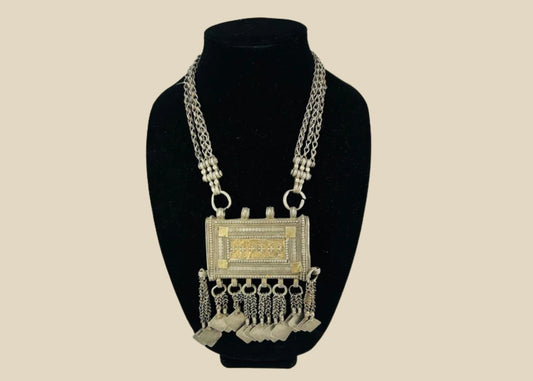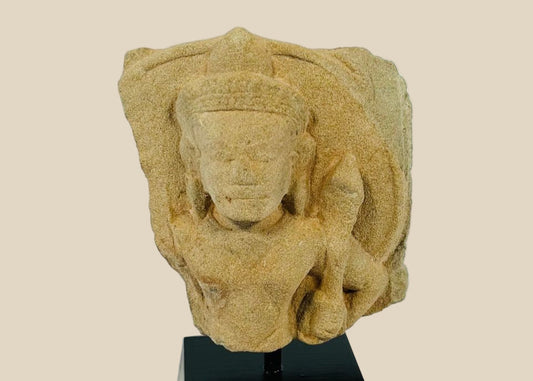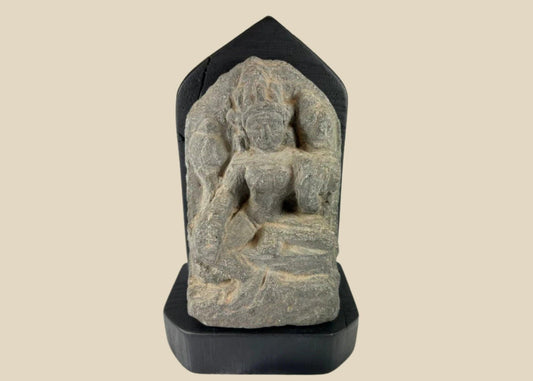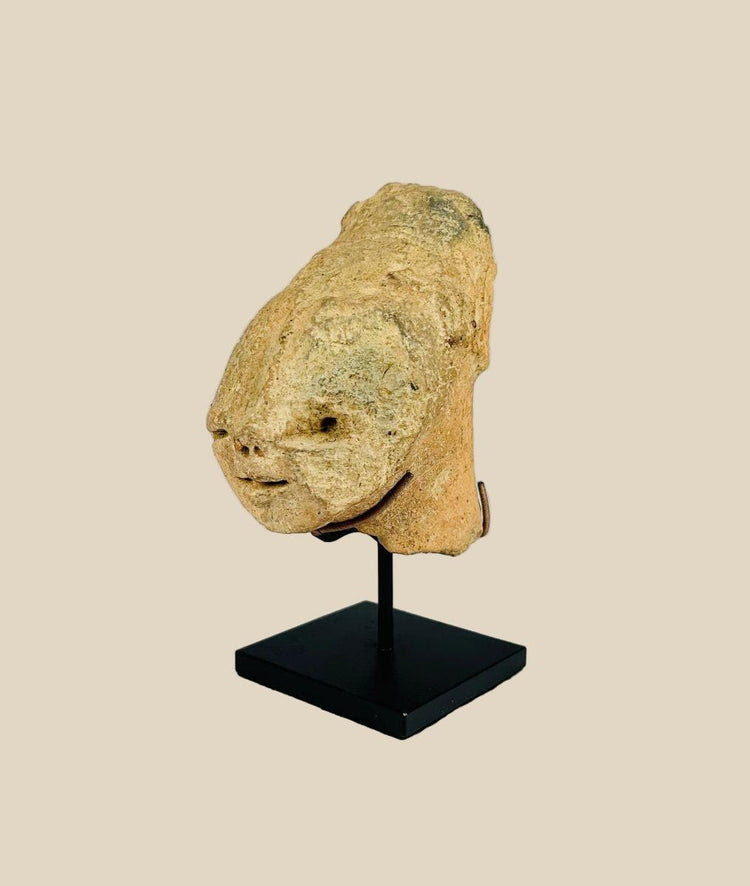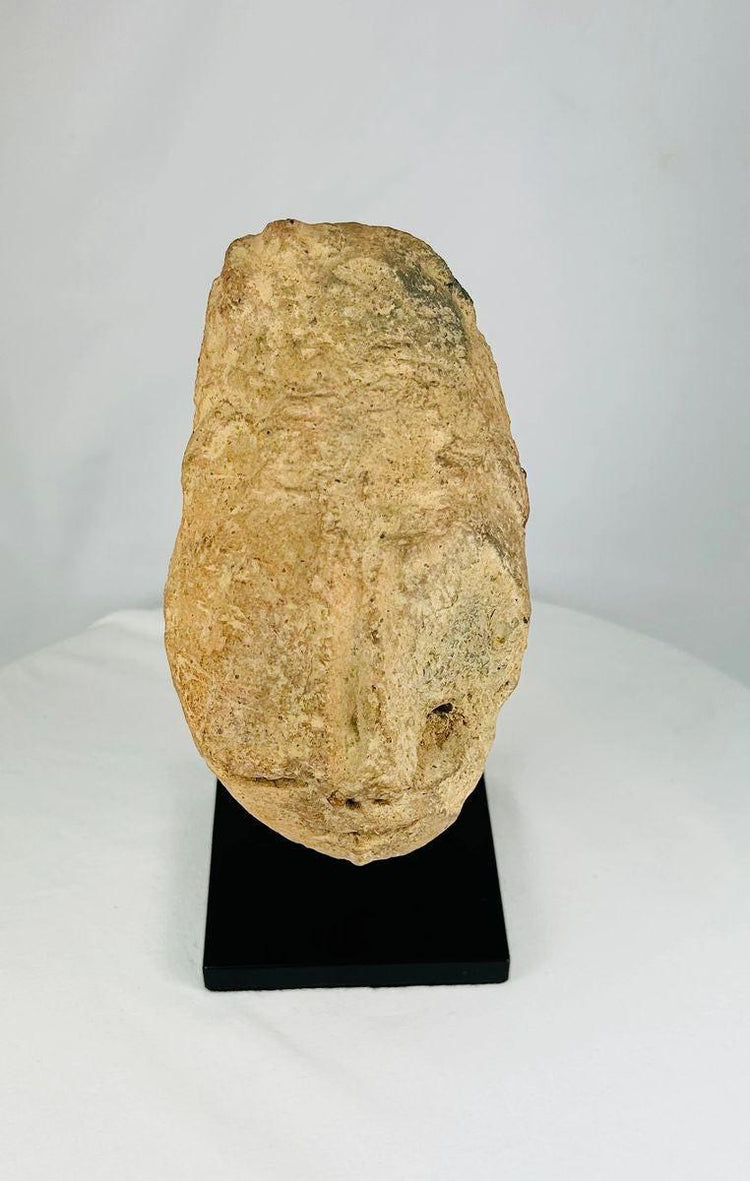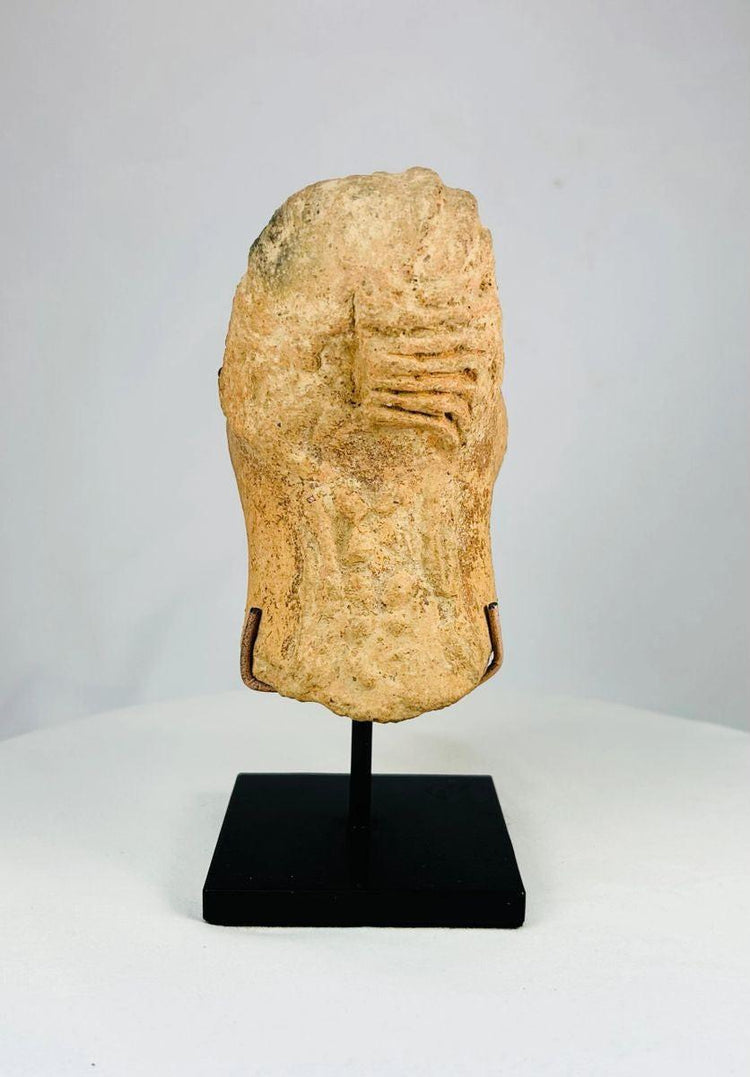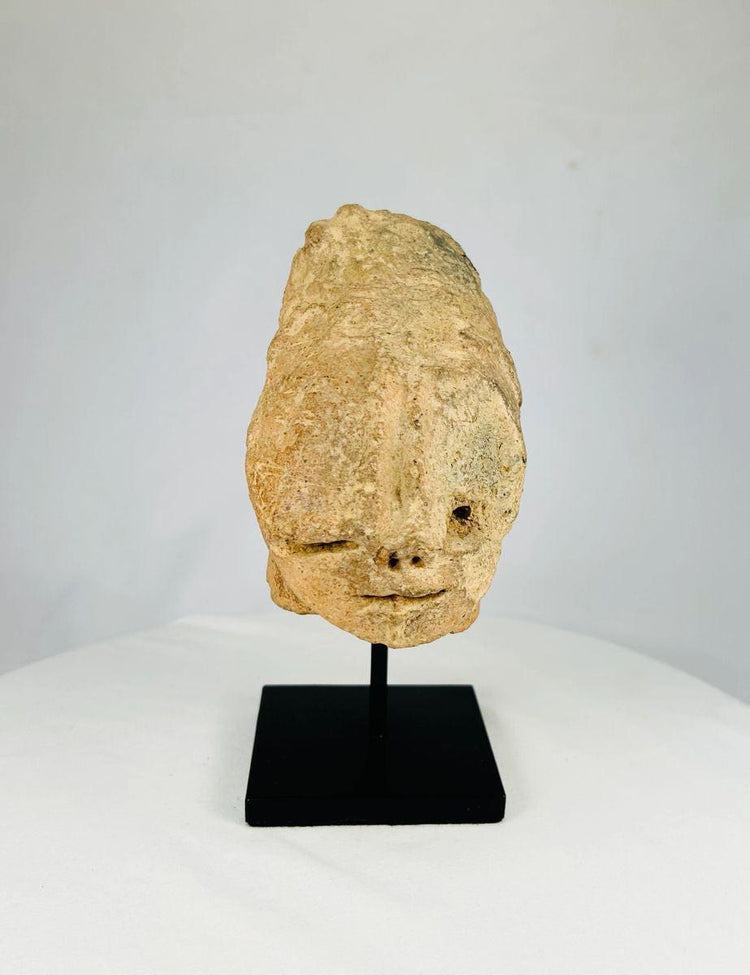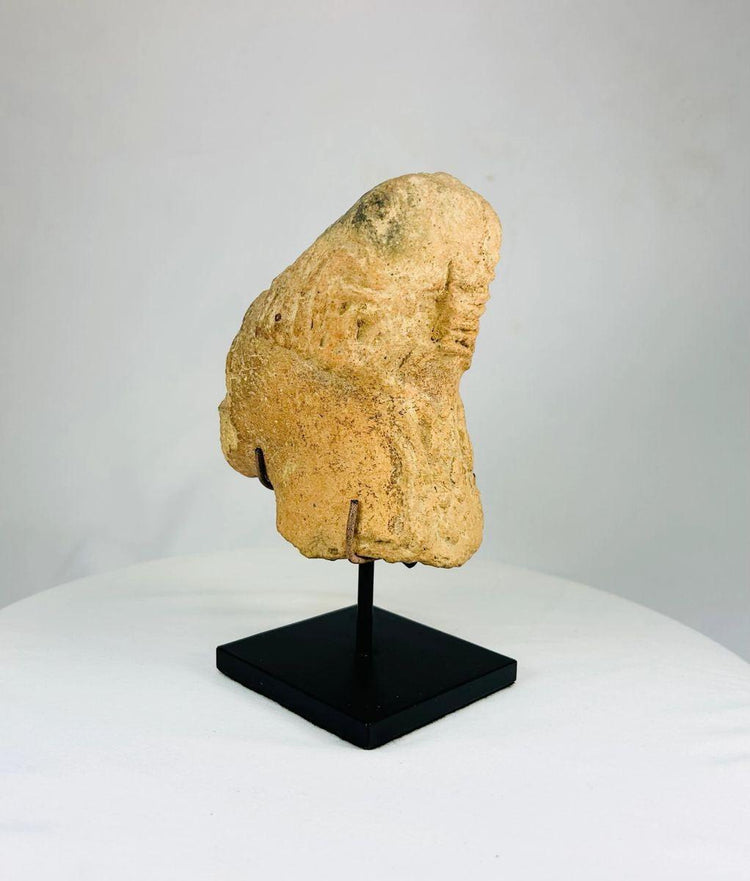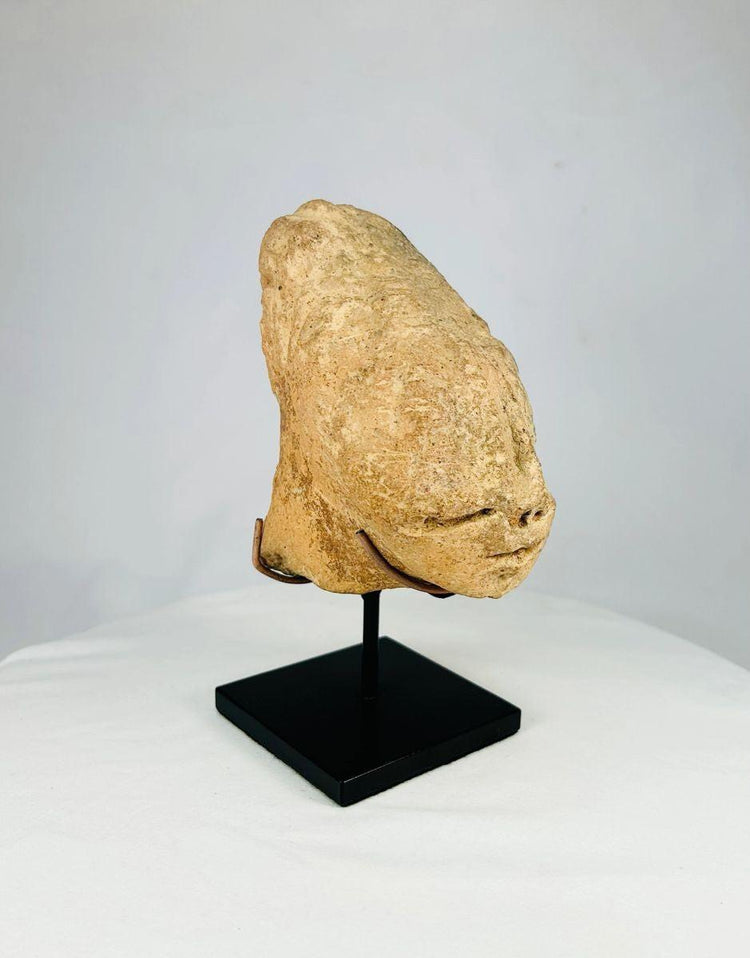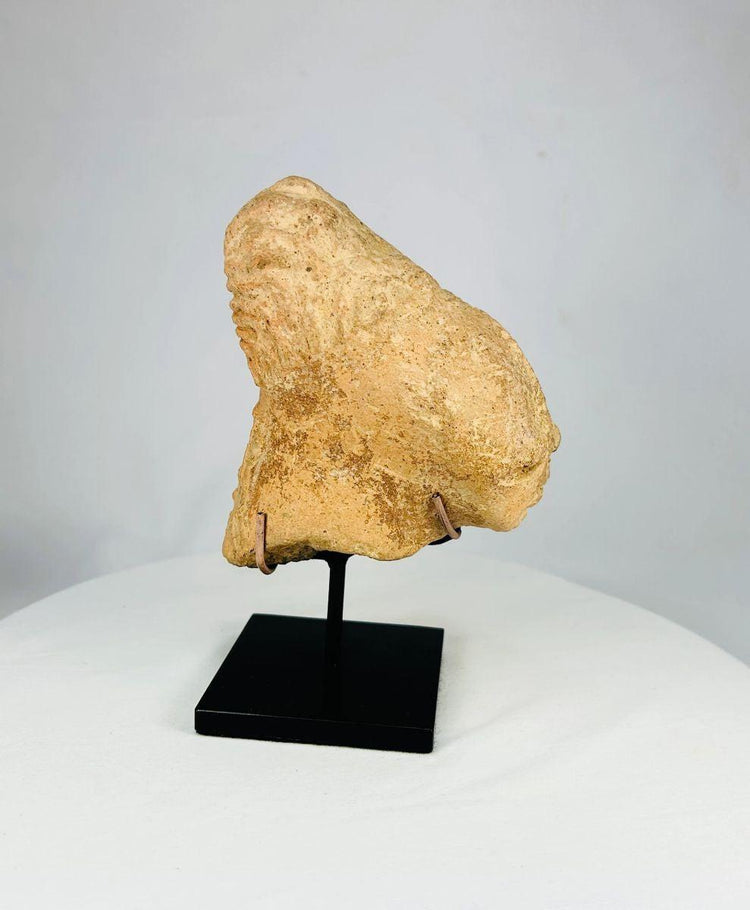Terracotta Head Fragment | Bura Culture | Circa 300-1100 CE
Description
More
Less
Historical Context & Origin
Region: Niger, West Africa
Material: Terracotta
Period: Bura culture, circa 300–1100 CE
Description
This exceptional terracotta head originates from the Bura culture, an ancient West African civilization renowned for its abstract and expressive art forms. Measuring approximately 7.75 inches tall, the head features carefully modeled lips, a flat nose, and subtle ornamentation along the back of the head. Its surface has developed a rich natural patina, bearing witness to centuries of age and preservation. Likely created for ceremonial or funerary purposes, this piece embodies the symbolic and spiritual traditions of the Bura people.
Features
- Expressive terracotta head with stylized lips and flat nose
- Subtle ornamentation along the back of the head
- Natural patina and weathering, consistent with great age
- Crafted in the abstract and symbolic style characteristic of Bura terracottas
Cultural Significance
The Bura culture flourished in present-day Niger between 300–1100 CE and is celebrated for its terracotta figures and funerary art. Sculptures such as this were likely associated with ancestor veneration, ritual practices, or symbolic guardianship. Their abstract forms embody both spiritual and cultural values, reflecting the worldview and identity of early West African societies.
Condition
Good condition with age-appropriate wear. Surface weathering and patina enhance its authenticity and testify to its antiquity.
Dimensions
Height: 7.75 in
Age
Circa 300–1100 CE
Learn More
Watch a Video on The Lost Bura Civilization: Africa’s Forgotten Masters of Iron and Mystery
View a Similar African Artifact: Ancient Sokoto West African Terracotta Figurine Circa 500-200 CE
Description
Historical Context & Origin
Region: Niger, West Africa
Material: Terracotta
Period: Bura culture, circa 300–1100 CE
Description
This exceptional terracotta head originates from the Bura culture, an ancient West African civilization renowned for its abstract and expressive art forms. Measuring approximately 7.75 inches tall, the head features carefully modeled lips, a flat nose, and subtle ornamentation along the back of the head. Its surface has developed a rich natural patina, bearing witness to centuries of age and preservation. Likely created for ceremonial or funerary purposes, this piece embodies the symbolic and spiritual traditions of the Bura people.
Features
- Expressive terracotta head with stylized lips and flat nose
- Subtle ornamentation along the back of the head
- Natural patina and weathering, consistent with great age
- Crafted in the abstract and symbolic style characteristic of Bura terracottas
Cultural Significance
The Bura culture flourished in present-day Niger between 300–1100 CE and is celebrated for its terracotta figures and funerary art. Sculptures such as this were likely associated with ancestor veneration, ritual practices, or symbolic guardianship. Their abstract forms embody both spiritual and cultural values, reflecting the worldview and identity of early West African societies.
Condition
Good condition with age-appropriate wear. Surface weathering and patina enhance its authenticity and testify to its antiquity.
Dimensions
Height: 7.75 in
Age
Circa 300–1100 CE
Learn More
Watch a Video on The Lost Bura Civilization: Africa’s Forgotten Masters of Iron and Mystery
View a Similar African Artifact: Ancient Sokoto West African Terracotta Figurine Circa 500-200 CE
You May Also Like

